Reviews
the Extra-Terrestrial
Steven Spielberg
USA, 1982
Credits
Review by Timothy Sun and Kartik Nair
Posted on 10 February 2011
Source Universal DVD
Categories Blind Spots
Can’t you understand English? He said ‘phone.’ He wants to call somebody.
Introduction by Kartik Nair
I don’t remember the first time I watched E.T. I remember my dad bringing home a rented videotape, sitting my sister and me down in front of the television, and telling us we were going to watch E.T. I don’t recall knowing then what ‘E.T.’ even meant. The next thing I remember is crying my eyes out long after the movie had ended. E.T. must have affected me in the way that some originary trauma does; those tears have since become motor reflexes, wired to appear whenever I watch the film (a few dozen times and counting).
Sentimental much? Perhaps, but I’m not alone. E.T. was huge when it came out, and it remains huge; beyond the theme park rides and the DVD re-issues, the film has a pop cultural presence matched by few other Spielberg films (only Jurassic Park and Jaws come close). Though the press found much to like in E.T. upon its release, the film’s critical reputation has somewhat diminished over time: those uncomfortable with what they see as unabashed Hollywood schmaltz have generally pointed to Blade Runner, Ridley Scott’s adult, visionary masterpiece (whose reputation has experienced the reverse fortune) as the more important and influential SF film from 1982. Personally, it’s hard to imagine sci-fi without either: consider, for instance, The X Files, which inherited equally from both (its famous twin mottos were “I Want To Believe” and “Trust No One”).
So, what happens when a grown-up sees E.T., without ever having seen it as a child? Pointless here to lament the kind of childhood that passed without being lit by E.T.’s magic fingers or soothed by his assurance that he’ll be right here. I’m afraid the film itself might come undone, looking like a manipulative family melodrama with a dollar sign where a soul should be. As for me: not only does E.T. return me to my childhood with express ease, I believe few other films can return our childhoods to us, recalling simply, and powerfully, the wonder of those wide-eyed years. Hence the bawling as John Williams’ fanfare blasts the spaceship into outer space: the surge of tears, I think, is the separation we sense, irrevocable and painful, from our own childhood.
Review by Timothy Sun
I just never had any interest. By the time I was getting into film, it seemed like Spielberg himself had already tired of his early preoccupations. He had already been immortalized with Schindler’s List, and Saving Private Ryan seemed to mark another, perhaps permanent, break from his Peter Pan-ish fixation on childish adventures. Saving Private Ryan was the first Spielberg film I saw in theaters and, being an impressionable young wannabe sophisticate, I agreed with the critical consensus that Spielberg had indeed “grown up.” So why go back and watch the early childish ones? Yes, I knew E.T. and Jaws and Raiders of the Lost Ark were classics, but I viewed them along the same lines as, say, Gone With the Wind—beloved, but not necessarily weighty enough to be good. By the time I was a junior in high school, and at the peak of my insufferable pretentiousness, I only wanted to see movies - preferably “dark” and violent movies - that had a “meaning,” or a “message,” or, best of all, “symbolism.” That populist manipulator Spielberg, especially early Spielberg, was a waste of time.
It’s never been fashionable to sing the praises of the most mainstream and popular artists. If even Joe Ticket-Buyer likes him, then the intelligentsia must not. I still know some film people who adhere to this elitist mindset, and apply it with particular relish to Spielberg, but thankfully I’ve outgrown it. At around the same time that I went back to look at Woody Allen’s “early funny ones,” I also undertook the Indiana Jones films, Close Encounters, and, finally, Jaws. But I never got around to E.T. until now.
Through cultural osmosis, I essentially knew what would happen in the film, but, I was happy to find, a plot summary and the ubiquitous image of the flying bikes do not even begin to do justice to the richness of the film. Far from being a children’s film, which I had always been led to believe, the film is more accurately described as a film about children and childhood, in all its complexity. I read somewhere that what makes E.T. so powerful is that even without the alien, there is a great film there. That’s somewhat hyperbolic but the point is well taken. Rarely has childhood been depicted so fully in its innocence, its pain, and its terror, without ever condescending to its young subjects. I was surprised to see that the first act of the film largely takes place at night, with Spielberg using the grammar of horror films. When E.T. is initially left behind by his spaceship, we see only panicked running, flashlights, shadows, and hear only the jangling of the chief pursuer’s keys. It is also night when we first meet Elliot. He is sent outside to collect a pizza from the delivery guy. His suburban house, menacingly shrouded in fog, would not be out of place in The Exorcist. He hears something in the shed, an ominous light shining from within. He tosses in a baseball and it’s tossed right back. In a different kind of film, this would be followed by a shock cut of the masked killer jumping out and stabbing our hero. But Spielberg is not interested in cheap tricks. He’s focused on the genuine mix of fear and curiosity that characterizes childhood. I used to be terrified of the idea of ghosts but could not stop reading about “real” ghost sightings and haunted houses. Elliot, and most kids, I imagine, share a similar fear of the unknown and a simultaneous desire to know the fear—it’s how children come to learn about the world.
This whole opening sequence, and much of the rest of the film, is shot from about waist-height, which is to say from a child’s perspective (human or otherwise). Like in Peanuts, adults are almost never seen in their entirety; they remain foreign, dangerous figures, instinctively felt by the children to be corrupt. When Spielberg shoots the team of scientists and government agents coming after E.T., they are as anonymous and foreboding as the soldiers in Potemkin. In the score, John Williams quotes a variation of his threatening “Imperial March” from Star Wars as these totemic figures cross the horizon.
The children/adult dichotomy takes on added resonance in light of Elliot’s parents’ recent divorce. Spielberg never panders to the audience with easy psychoanalysis, and the divorce is only explicitly mentioned a few times, but we sense that it has had a profound effect on Elliot (as Spielberg’s own parents’ divorce clearly did on him). For Elliot, adults disappoint and abandon and hurt. In his slowly budding relationship with E.T., he is determined not to do the same. Theirs is a relationship that goes beyond mere friendship. There is an oddly possessive quality to the relationship, with Elliot obsessively taking responsibility over E.T. in a sort of father-son relationship. The diminutive alien becomes a kindred spirit - another abandoned child - through whom Elliot can exorcise his own insecurities. The depth of feeling between Elliot and E.T. in the surreal and frightening sequence where E.T. is dying is heartbreaking in its intensity and a testament to both Spielberg for making us care so much about a wizened puppet and to Henry Thomas, who gives as passionate a performance as any ever given by a child actor.
E.T. is, of course, not all so dark. What keeps it alive in the public imagination is its continued ability to inspire wonder in the audience, and it does so by imbuing a sense of wonder in the children themselves. Unlike the jaded kids and teenagers in today’s films, who are all either sexually preoccupied, unrealistically worldly, or obnoxiously sardonic, Elliot and his siblings behave like actual kids—Elliot’s whoop of joy when E.T. first takes him on a flying bike ride is key to the film’s success. Spielberg’s focus is not on the flying bike, but on Elliot’s sublime reaction to it. Compare, for instance, the first time Harry Potter rides a broom. The emotional impact on the audience is nil because the focus of the filmmakers’ is on making the audience say, “Look at that kid zooming around on a broom.”
E.T. would not be made today unless it was an animated feature by Pixar. It’s too sincere, too heartfelt in its embrace of childhood innocence and goodness. If made today, Elliot would be dropping pop-culture references and E.T. would almost certainly have to suffer through some kind of hip-hop dance number. There would be extended action sequences and wall-to-wall CGI effects. Spielberg could have done the same back in 1982, but he eschews such foolishness. He keeps the film rooted in Elliot’s world and saves the effects for where they matter. The image of a pot of wilted flowers miraculously coming back to life after it’s feared that E.T. has died packs more of an emotional wallop than all of the magic in seven Harry Potter films.1 And dammit if your heart doesn’t soar when those bikes take off and the children leave their adult pursuers behind on earth, left to their cynicism and callousness. I watched E.T. with my grandmother, who doesn’t speak English and usually opts for action movies, and she let out a triumphant laugh of pure happiness when those kids rode off into the sky.
What I praise as Spielberg’s sincerity has often been decried as his manipulativeness. It’s true that what has consistently frustrated me about Spielberg is his dazzling technical mastery being used in the service of simplistic and preordained emotional and intellectual payoff.2 Saving Private Ryan is marred by a jingoistic, Hollywood-circa-1943 patriotism that necessitates the evil German soldier come back in the final reel to get his comeuppance. Schindler’s List has an easy good/bad dichotomy between Liam Neeson and Ralph Fiennes that washes away the complexities of the Schindler character.3 E.T. suffers from a similar heavy-handidness in its conclusion. An early harbinger of the tear-jerking to come occurs when Elliot mawkishly declares over E.T.’s unconscious body, “I love you.” Later, in the teary goodbyes before E.T. returns to his spaceship, John Williams’ score is thundering at such volume - aural and emotional - that the viewer is powerless to do anything but weep along with the characters. Most clumsily, the kindly scientist who reveals to Elliot that his intentions toward E.T. are benevolent rushes to the scene with Elliot’s mom, presumably as a father surrogate in order to reincorporate the nuclear family.
It’s an overwrought ending to a film that doesn’t need it, but the emotions are genuine and they are earned. Most impressive to me, and what more than saves the ending, is Spielberg’s decision to hold the last shot on a close-up of Elliot’s ambivalent face. E.T. is often talked about as a feel-good children’s fantasy, but its somber and frightening aspects, and especially this final shot, belie its complexities. Elliot is not smiling, we get no wide shot of him retreating to his newly re-formed family unit. Elliot is alone, staring up at the departing spaceship, and his expression is one of uncertainty. The easy reference here is Antoine Doinel at the end of The 400 Blows, and given Spielberg’s fondness for Truffaut, it’s likely an inspiration. Like Antoine, Elliot is at a crossroads, with one phase of childhood over and the more treacherous minefield of adolescence before him. He has lost what appeared to be his only and closest friend. He has been abandoned once again. His mother may begin seeing this strange scientist fellow. Spielberg, bravely and wisely, does not end his portrait of childhood on enchantment or uplift (Williams’ score notwithstanding), but on ambivalence. The extra-terrestrial is gone, but Elliot remains earthbound and still has much growing up to do. Critics would say the same thing about Spielberg, but only an artist mature enough to understand what it means to be a child, to be able to still be awed by the wondrous, could have made such a sincere and beautiful film.
- I kept wishing as I watched that Spielberg had taken the reins of the Harry Potter franchise. What’s always been missing from those films – which, in sum, are serviceably good – is exactly what’s in such abundance in E.T.: children’s genuine capacity for wonder, the fear of being an uncomprehending child in a world of adults, and the salvation that is true friendship. ↩
- Spielberg’s most fascinating works remain, for me, the ambivalent ones: Close Encounters, A.I., Munich—all flawed, and not necessarily my favorites, but all interesting. ↩
- I talk about this at some length in my article on Mandingo. ↩
More Blind Spots
-
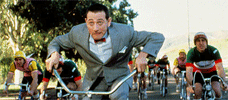
Pee-wee’s Big Adventure
1985 -
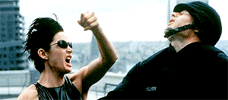
The Matrix
1999 -
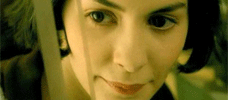
Amélie
2001 -
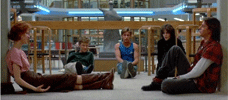
The Breakfast Club
1985 -
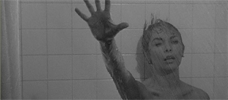
Psycho
1960 -
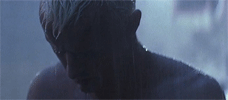
Blade Runner
1982 -
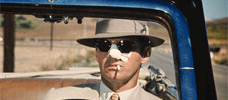
Chinatown
1974 -
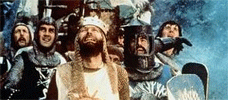
Monty Python and the Holy Grail
1975 -
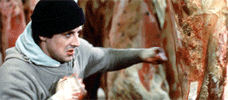
Rocky
1976 -
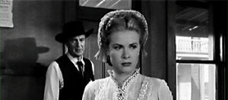
High Noon
1952 -
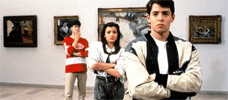
Ferris Bueller’s Day Off
1986 -
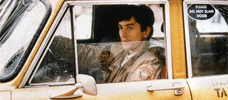
Taxi Driver
1976 -
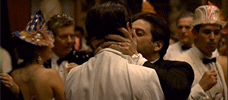
The Godfather
1972 -
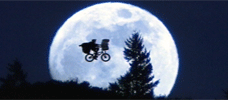
E.T.
1982 -
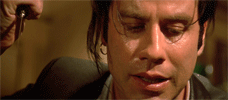
Pulp Fiction
1994
We don’t do comments anymore, but you may contact us here or find us on Twitter or Facebook.



